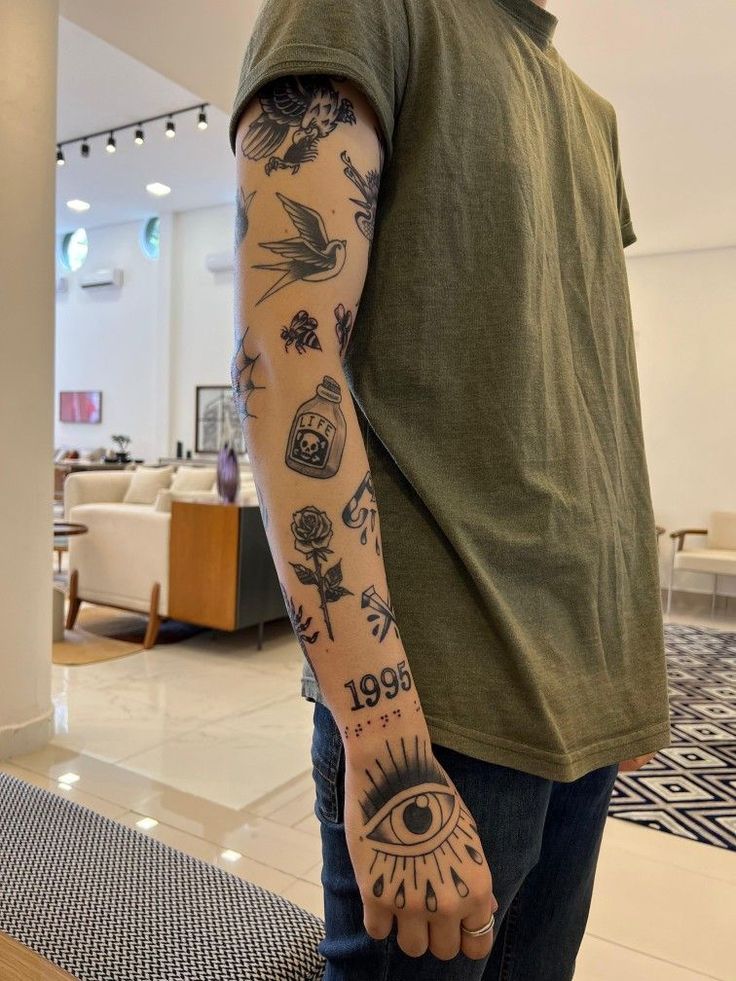
Becoming a professional tattoo artist involves more than just natural talent; it requires a solid grasp of artistry, technique, and proper hygiene practices. Attending a tattoo school provides an ideal setting for individuals looking to refine their craft and launch a successful career in the tattoo industry.
This case study will delve into how tattoo schools play a pivotal role in shaping the careers of both beginners and seasoned artists. We will explore how these schools equip students with structured lessons, hands-on experience, and exposure to a wide range of tattoo styles.
Whether you’re a beginner seeking guidance or an experienced artist looking to enhance your skills, attending the best tattoo school for beginners can make a significant difference in your professional journey.
The Importance of Structured Learning in Tattoo Schools
Tattoo schools provide a structured learning environment that guides students from the basics to more advanced concepts. For beginners, this means learning fundamental tattooing techniques, such as understanding how to use tattoo machines, mastering the art of shading, and practicing safe, sterile tattooing practices. Without formal training, these key components could take much longer to grasp, potentially putting both the artist and the client at risk.
Experienced tattoo artists also benefit from advanced courses that delve into specialized areas such as Japanese tattoo prints, portrait tattoos, or even the art of drawing custom tattoo designs. These programs allow seasoned artists to refine their techniques and learn new styles or modern innovations in tattoo artistry.
One key aspect of attending a tattoo school is the opportunity to learn from seasoned professionals. These instructors not only teach the techniques and skills but also share their own industry experiences, offering valuable insights into the business side of tattooing, client relations, and building a portfolio. A well-rounded education like this can significantly enhance an artist’s professional confidence.

The Role of Tattoo Sketchbooks and Books in Education
In tattoo schools, textbooks, and sketchbooks are essential tools for any artist’s growth. A tattoo sketchbook serves as a foundation for developing design ideas, allowing students to experiment with various tattoo styles. For beginners, it becomes an extension of their creative process, enabling them to sketch out different tattoo ideas before committing them to the skin. These sketchbooks are also instrumental in developing an artist’s unique style and approach to custom tattoo designs.
Additionally, tattoo books and tattoo books in PDF form are invaluable resources for learning. Tattoo books often feature essential advice on techniques, design principles, and the historical context of tattooing, while tattoo sketches give students visual examples to draw inspiration from. The combination of physical and digital books ensures that students have access to a wide range of knowledge, regardless of their location or the availability of in-person resources.
Books that focus on specific styles, such as Japanese tattoo prints, can deepen students’ understanding of cultural influences on tattoo art. Japanese tattoos, with their rich history and distinct symbolism, are an example of how specialized knowledge in tattoo design can elevate an artist’s expertise. Understanding these cultural aspects helps artists create tattoos that are respectful and authentic.
Developing Practical Skills through Real-World Experience
Tattoo schools don’t only focus on theoretical knowledge; they place a strong emphasis on real-world experience. Aspiring tattoo artists spend hours practicing their craft on practice skins, often progressing to live models under the supervision of experienced instructors. This hands-on approach builds the confidence needed to move from theoretical designs to actual tattoos on the skin.
Experienced tattoo artists also benefit from practicing in a school environment, as they get the chance to receive feedback on their techniques, collaborate with other artists, and explore new styles. Whether perfecting fine lines or experimenting with bold color work, a tattoo school provides the space and guidance to continually grow.
In addition, students often receive guidance on how to build a professional portfolio, which is essential for securing clients. A strong portfolio, coupled with formal education, enhances an artist’s reputation and opens doors to better opportunities.
The Business of Tattooing: Preparing for Success
While creativity and artistry are crucial in the tattooing world, so is the business aspect. Tattoo schools help prepare students for the realities of managing a tattooing career. This includes client interaction, understanding contracts, pricing tattoos, and maintaining a clean and organized studio.


Tattoo schools also emphasize the importance of hygiene and safety, which are critical in ensuring both the artist’s and client’s well-being. This comprehensive approach to education ensures that students graduate with a holistic understanding of the tattoo industry.
One key takeaway for students is the importance of networking and building a reputation within the tattoo community. Attending a reputable tattoo school can open doors to apprenticeships with well-known tattoo artists, providing a springboard into the industry.
Real Case Studies: Success Stories from Tattoo Schools
Take the example of a student who attended a tattoo school in Colorado. With no prior experience in tattooing, they enrolled in a comprehensive program that provided them with a solid foundation in tattoo machines, ink, and safety protocols. After completing the course, the artist worked as an apprentice and eventually launched their tattoo studio. The skills they acquired at tattoo school helped them refine their craft and succeed in a highly competitive market.


Another example is an experienced artist who, despite years of tattooing, felt the need to expand their skill set. After attending advanced tattoo courses focusing on Japanese tattoo prints, they were able to offer their clients a unique and highly sought-after style. This specialization led to increased bookings and a stronger reputation in their community.
These case studies demonstrate the diverse benefits that tattoo schools offer both beginners and experienced artists alike.
In conclusion, tattoo schools offer aspiring and experienced tattoo artists an invaluable opportunity to enhance their skills and develop a deep understanding of the tattooing process. Whether it’s through structured lessons, practical experience, or exposure to specialized techniques and tattoo books, students leave tattoo schools well-equipped to succeed in this dynamic field.
For those beginning their tattoo journey, finding the best tattoo school for beginners is crucial for laying a solid foundation. Likewise, experienced artists seeking to expand their repertoire can benefit from advanced courses that refine existing techniques or introduce new styles. Tattoo schools provide the knowledge and support needed to thrive in an ever-evolving industry, ensuring that tattoo artists are prepared for a long and successful career.
- 251shares
- Facebook0
- Pinterest251
- Twitter0
- Reddit0



